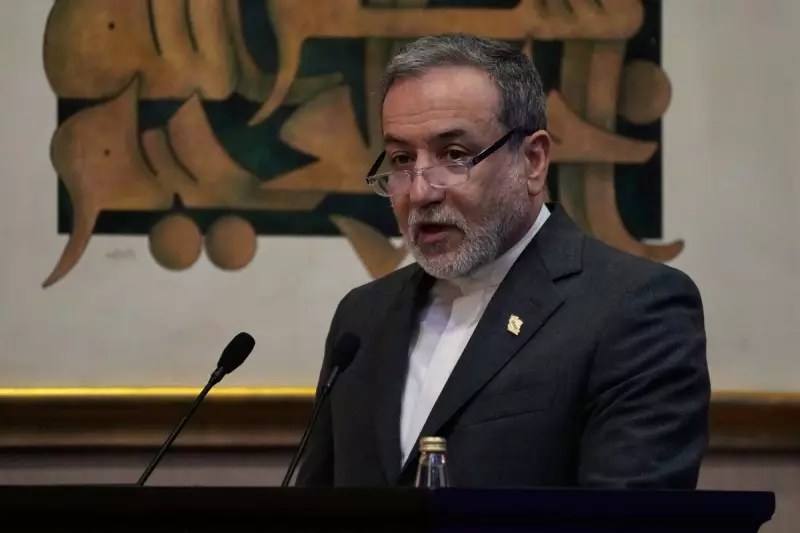
Iran has completely stopped enriching uranium at all sites across the country, its foreign minister confirmed in a stark admission following devastating airstrikes by Israel and the United States.
Direct Admission After Attacks
During a summit in Tehran on Sunday 16 November 2025, Foreign Minister Abbas Araghchi gave the most direct response yet from the Iranian government regarding the status of its nuclear ambitions. Answering a question from an Associated Press journalist, Araghchi stated unequivocally that enrichment activities have ceased.
"There is no enrichment right now because our facilities — our enrichment facilities — have been attacked," Araghchi declared. He emphasised that "there is no undeclared nuclear enrichment in Iran" and that all remaining facilities remain under the supervision of the International Atomic Energy Agency.
Iran's Stance on Nuclear Rights
Despite the current halt, the Foreign Minister was resolute about Iran's future intentions. "Iran's right for enrichment, for peaceful use of nuclear technology, including enrichment, is undeniable," Araghchi asserted.
He reinforced that Tehran considers this an "inalienable right" and stated "we would never give up our rights." When questioned about what would be required for Iran to continue negotiations with the US and other nations, Araghchi maintained that Iran's position remains "clear."
Regional Tensions and Domestic Challenges
The revelations came during a summit titled "International Law Under Assault: Aggression and Self-Defense," hosted by the Iran's Institute for Political and International Studies, which is affiliated with the country's Foreign Ministry. The conference heavily focused on the 12-day war in June, with Iranian analysts presenting papers defending Tehran's actions.
Professor Mohammad Kazem Sajjadpour, an international relations scholar, wrote in his presentation that "Iran's defensive response was remarkable, inspiring, historic and above all, pure," directly contrasting this with German Chancellor Friedrich Merz's characterisation of Israel having done the "dirty work" in launching its attack.
The summit's venue itself carried symbolic weight, being held in the Martyr General Qassem Soleimani Building, named for the Revolutionary Guard leader killed by a US drone strike in 2020. Images of children killed during the recent conflict lined the approach to the building.
However, Iran faces significant challenges beyond the nuclear issue. The country's air defence systems were largely destroyed during the June attacks, potentially leaving it vulnerable to future airstrikes as tensions over its nuclear program persist.
Domestically, economic pressures and societal changes continue to test Iran's Shiite theocracy. The government has postponed decisions on enforcing mandatory hijab laws and raising prices for government-subsidised gasoline—both measures that have triggered nationwide protests in recent years.





